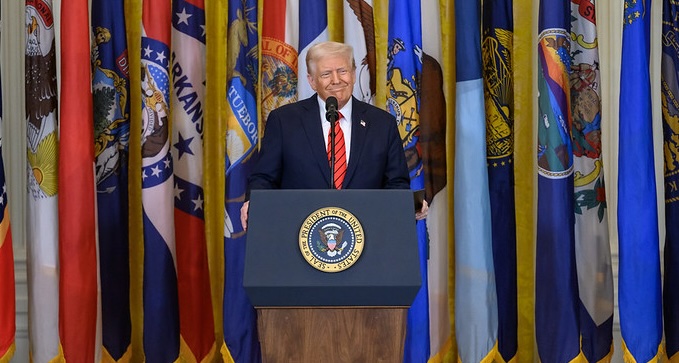Already a subscriber? Make sure to log into your account before viewing this content. You can access your account by hitting the “login” button on the top right corner. Still unable to see the content after signing in? Make sure your card on file is up-to-date.
President Trump has signed an executive order aimed at overhauling the federal election system.
Some shit you should know before you read: For years, Trump has called for sweeping changes to the US election system, with voter ID laws at the heart of his demands. He’s consistently argued that requiring a government-issued ID to vote is essential for preventing fraud and protecting election legitimacy. Trump and many Republicans say voter ID laws are just common sense, pointing out that IDs are already required for things like flying or buying alcohol—so why not voting? Democrats, on the other hand, argue that such laws disproportionately impact marginalized groups—including the elderly, low-income individuals, and communities of color—who they say are less likely to have qualifying identification. They warn it could suppress voter turnout.

What’s going on now: During a White House event yesterday, Trump signed an executive order titled “Preserving and Protecting the Integrity of American Elections.” It requires individuals to show government-issued documentary proof of US citizenship—such as a passport, REAL ID, or military ID—when registering to vote in federal elections. The order also directs the Election Assistance Commission to immediately update the national voter registration form to reflect these changes.
Additionally, it instructs the Attorney General to create data-sharing agreements with state election officials to identify and prosecute potential voter fraud or violations of election law.
The order also seeks to change how mail-in and absentee ballots are handled. It mandates that all such ballots must be received and counted by the time polls close on Election Day—a sharp shift from current laws in many states, where ballots postmarked by Election Day can still be accepted for days after.
For states that don’t comply, the federal government could withhold election-related funding, effectively using financial leverage to enforce adherence.







